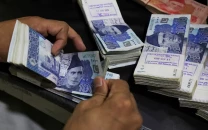Facilitating Article 6 implementation for climate goals
Article designed to facilitate trade in emissions reduction credits between countries

In the global fight against climate change, it has become abundantly clear that public funds are insufficient to finance the NDCs of developing nations.
Most emission reduction activities must be financed and implemented by the private sector. Suitable finance approaches are therefore required – and this is where Article 6 of the Paris Agreement stands out as a pivotal mechanism in the global fight against climate change.
Article 6 is designed to transform international climate action by facilitating the trade of emission reduction credits between countries. This strategy not only aims at carbon reduction but also supports developing nations to achieve their climate targets. Article 6 introduces the concept of “Internationally Transferrable Mitigation Outcomes” (ITMOs), under which countries can cut their greenhouse gas (GHG) emissions by investing in projects that reduce emissions in other countries.
However, these projects need to be ‘real,’ ‘verified,’ and ‘additional,’ requiring a rigorous approval process before being reported, underscoring the need for international collaboration and substantial capacity development for countries like Pakistan. But what is Article 6, and how does it assist a country to meet its nationally determined contribution (NDC) targets?
Article 6 creates a collaborative framework for nations and private organisations to participate in climate change mitigation. It identifies and encourages opportunities for verifiable emission reductions, attracts funding to implement them, and allows cooperation among countries and other groups to conduct and benefit from these activities. Within Article 6, there are three tools that countries can draw upon: Article 6.2 allows countries to exchange mitigation outcomes bilaterally and report their trade and use them towards their NDCs.
Article 6.4 establishes a new UNFCCC mechanism for the validation, verification, and issuance of high-quality carbon credits, and Article 6.8 provides opportunities for countries to cooperate towards the achievement of their NDCs without relying on carbon markets. Practically, partnerships under Article 6 can take several forms. For example, under Article 6.2, Country A may sell excess carbon reductions from renewable energy projects to Country B, assisting it in meeting its NDC targets.
Article 6.4 enables a corporation in Country C to support reforestation in Country D, resulting in carbon credits for sale on the international market to offset emissions. Furthermore, Article 6.8 allows Country E to share its energy efficiency programme with others, promoting non-market cooperation. However, while this mechanism has much potential, its complexity necessitates significant capacity building and a detailed needs assessment, which can be difficult for countries with limited resources.
Read Body to identify climate change issues
Countries are beginning to prepare for Article 6 “readiness” to ensure they have all the necessary capacities, systems, and institutional frameworks in place to engage in international cooperation fairly and transparently.
This readiness is vital since it augments national efforts by incentivising private sector’s involvement in global carbon reduction initiatives, providing a structured path for financing and cost-effective implementation of emission reduction projects beyond borders.
Countries like Japan and Switzerland have established frameworks for purchasing ITMOs and incorporating them into their NDCs, showcasing the practical applications of collaborative climate action. Against this backdrop, the Supporting Preparedness for Article 6 Cooperation (SPAR6C) emerges as a crucial initiative, particularly for countries like Pakistan, which are poised to leverage the mechanisms under Article 6 to accelerate their climate action and sustainable development goals.
Funded by the German Federal Ministry for Economic Affairs and Climate Action (BMWK), through the German government’s International Climate Initiative (IKI) and led by the Global Green Growth Institute (GGGI), SPAR6C operates with a consortium of partners, including Carbon Limits, GFA Consulting, Kommunalkredit Public Consulting, and the United Nations Environment Programme Copenhagen Climate Centre.
It is a five-year, 20-million-euro programme being implemented in Pakistan, Zambia, Colombia, and Thailand and is designed to assist them in navigating and leveraging the mechanisms outlined in Article 6 of the Paris Agreement, enabling international cooperation on carbon markets. The initiative aims to demystify the complex processes associated with Article 6, facilitating its understanding and application across these diverse geopolitical landscapes.
The comprehensive programme includes six interlinked work packages: four in-country programmes (focusing on medium- and long-term emissions planning, governance frameworks, and mitigation activity development) and two global (Community of Practice for Article 6 Implementing Countries and Article 6 toolbox). By fostering knowledge exchange and promoting the application of innovative climate solutions, SPAR6C is dedicated to amplifying national climate ambitions and catalysing investments in GHG mitigation, paving the way for a more sustainable and resilient global community.
For Pakistan, SPAR6C is even more crucial. The country faces a formidable climate challenge, with a financial gap estimated at $101 billion for its energy sector’s transition alone. Pakistan’s ambitious goal to slash GHG emissions by 50% by 2030 underlines the urgency of mobilising significant investment in GHG mitigation projects. Here, SPAR6C plays a pivotal role by catalysing investments and laying the foundation for ITMO trading under cooperative approaches, effectively turning the challenges of Article 6 into opportunities for national development and global environmental benefits.
Moreover, SPAR6C’s efforts extend beyond financial mobilisation. By enhancing the capacity of national stakeholders to prepare and approve Article 6 transactions, the initiative is empowering Pakistan to bolster its climate action capabilities. This is complemented by developing essential tools and guidelines for effective participation in Article 6 initiatives, promoting a deeper understanding and engagement with the international carbon market.
Another innovative strategy introduced by SPAR6C is with the Community of Practice for Article 6 Implementing Countries (CoP-ASIC). This initiative is set to revolutionise how Article 6 is implemented through a groundbreaking “learning by doing” strategy.
By engaging graduate students in a Research Mentorship Programme (RMP) and facilitating their entry into sectors like government, NGOs, and the private sector, CoP-ASIC creates a vibrant platform for exchanging strategies and insights into Article 6 globally.
This initiative, particularly beneficial for Pakistan, seeks to close the gap between academia and industry, fostering a new generation of carbon pricing experts and enhancing national capacity in carbon market engagement.
CoP-ASIC’s annual workshops and financial support for student research underscore its commitment to nurturing sustainable climate strategies in Pakistan and beyond. For the inaugural batch, RMP received 77 applications from the four SPAR6C programme countries, out of which eight finalists have been selected to receive research support, followed by funded internships at reputed international organisations. The maximum number of applications came from Pakistan at 37, showing a substantial interest in the programme.
Amidst the global discourse surrounding climate change, there is no second view that collaboration across borders, sectors, and disciplines is the cornerstone of effective climate action. An essential step towards fostering this collaborative spirit was taken during COP28 at the Pakistan pavilion with the release of the Readiness and Needs Assessment (RNA), which identifies critical gaps and offers a path for Article 6 implementation among SPAR6C member nations.
The writer is a sustainability and climate risk professional, passionate about sustainable energy consumption and climate change
Published in The Express Tribune, April 1st, 2024.
Like Business on Facebook, follow @TribuneBiz on Twitter to stay informed and join in the conversation.



















COMMENTS
Comments are moderated and generally will be posted if they are on-topic and not abusive.
For more information, please see our Comments FAQ